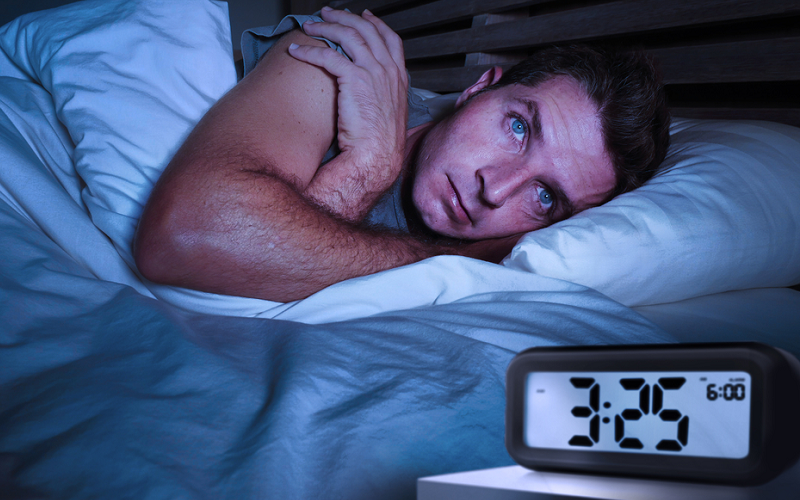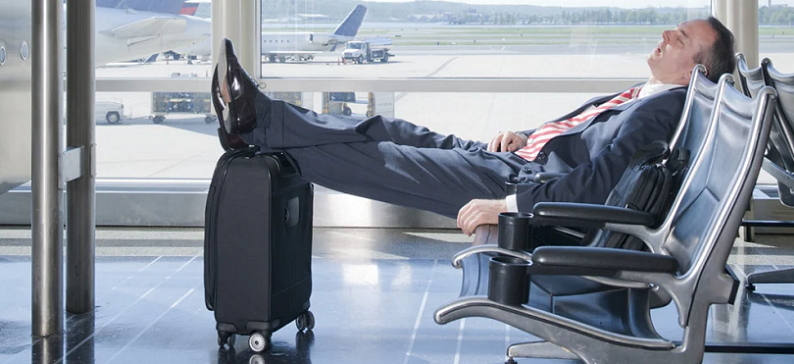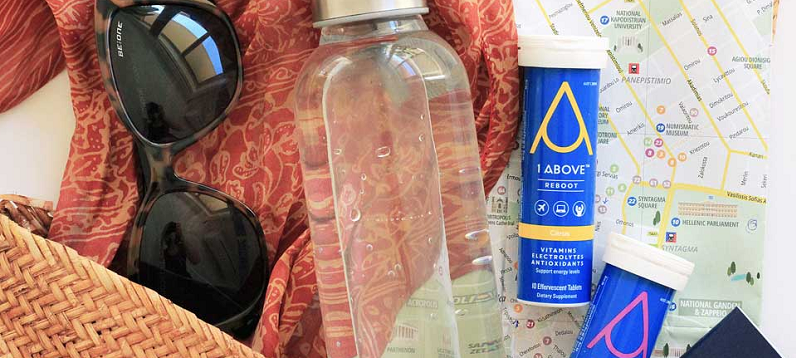
Traveling across time zones can be an exciting yet exhausting experience. Jet lag, the temporary sleep disorder that results from these journeys, often leaves us feeling sluggish, disoriented, and struggling to focus. Enter nootropics, a class of supplements known to enhance cognitive abilities and boost overall brain performance. Here we explore the connection between nootropics and jet lag, discuss how these supplements can help you maintain peak cognitive function during your travels, and provide a guide to the top nootropics for combating jet lag.
Contents
Introduction to Nootropics and Jet Lag
Long-distance travel, particularly across multiple time zones, can be both exhilarating and challenging. One of the major drawbacks of such adventures is jet lag, a temporary sleep disorder that often leaves travelers feeling fatigued, disoriented, and struggling with cognitive function. Nootropics, a class of supplements known for their brain-boosting abilities, may offer a solution to these challenges.
Definition of Nootropics
Nootropics, sometimes referred to as “smart drugs” or cognitive enhancers, are substances that have the ability to improve cognitive function, particularly in areas such as memory, creativity, motivation, and focus [1]. These substances can be natural, like certain herbs and plant extracts, or synthetic, like pharmaceutical drugs. While nootropics have been gaining popularity in recent years, the concept dates back to the 1960s, when Romanian psychologist and chemist Dr. Corneliu E. Giurgea first coined the term.
Explanation of Jet Lag
Jet lag is a temporary sleep disorder that occurs when you travel rapidly across multiple time zones. This rapid change disrupts your body’s internal clock, or circadian rhythm, which regulates sleep-wake cycles, hormone release, and other essential bodily functions [2].
As a result, individuals suffering from jet lag may experience difficulty falling asleep or staying awake, daytime fatigue, poor concentration, irritability, and even gastrointestinal issues. The severity of jet lag can vary depending on factors such as the number of time zones crossed, individual susceptibility, and the direction of travel.
Connection Between Nootropics and Jet Lag
Given the cognitive challenges that arise from jet lag, nootropics have become a popular option for travelers looking to maintain optimal brain function during their journeys. By enhancing cognitive abilities and boosting overall brain performance, nootropics can help counteract the negative impact of jet lag on mental and emotional well-being [3]. While they may not eliminate jet lag entirely, these supplements can provide a valuable tool for mitigating its effects and allowing travelers to make the most of their time in a new time zone.

The Impact of Jet Lag on Cognitive Function
The effects of jet lag extend beyond mere physical exhaustion, often impacting a person’s cognitive abilities as well. In this section, we will explore the ways in which jet lag can disrupt circadian rhythms, cause mental fatigue and cognitive decline, and affect mood and emotional regulation. By understanding these impacts, we can better appreciate the potential benefits of nootropics for those navigating the challenges of long-distance travel.
Disruption of Circadian Rhythms
The human body relies on a complex internal clock known as the circadian rhythm to regulate various physiological processes, including sleep-wake cycles, hormone release, body temperature, and digestion. Traveling across multiple time zones can disrupt this delicate balance, leading to a host of cognitive challenges [4]. For example, when your body is telling you it’s time to sleep, but the local time dictates otherwise, you may find it difficult to concentrate or make decisions, as your brain is not functioning optimally.
Mental Fatigue and Cognitive Decline
Jet lag can lead to mental fatigue, making it difficult to think clearly, focus, and process information efficiently. This cognitive decline can manifest in various ways, such as forgetfulness, slower reaction times, and reduced problem-solving abilities. When suffering from jet lag, even routine tasks can become challenging, as your brain struggles to cope with the misalignment between your internal clock and the local time.
Effects on Mood and Emotional Regulation
The disruption of circadian rhythms and the ensuing cognitive decline can also have a significant impact on a person’s mood and emotional well-being. Jet lag can lead to increased irritability, anxiety, and even depression, as your brain struggles to adapt to the new time zone. Furthermore, when cognitive resources are depleted due to fatigue, individuals may find it difficult to regulate their emotions effectively, resulting in mood swings and heightened emotional reactivity.

Understanding How Nootropics Can Help Combat Jet Lag
Now that we’ve established the cognitive challenges associated with jet lag, it’s essential to explore how nootropics can help combat these issues.
Enhancing Cognitive Function
One of the primary benefits of nootropics is their ability to enhance cognitive function. By improving brain health and optimizing neural communication, nootropics can counteract the cognitive decline associated with jet lag [5]. This can result in improved memory, increased mental clarity, and enhanced problem-solving abilities, allowing travelers to perform at their best despite the challenges of adjusting to a new time zone.
Boosting Energy Levels
Many nootropics can help increase energy levels by stimulating the production of neurotransmitters that promote alertness and wakefulness. This can be particularly beneficial for travelers dealing with jet lag-induced fatigue, as it can help them stay awake and alert during daytime hours and combat the drowsiness that often accompanies jet lag.
Improving Focus and Concentration
Jet lag can make it difficult to concentrate and stay focused on tasks at hand. Nootropics can help improve focus and concentration by optimizing brain function and enhancing the brain’s ability to process information. By taking nootropics during travel, individuals may find it easier to stay on task and maintain their productivity levels, even when coping with the effects of jet lag [6].
Supporting Mood and Emotional Well-being
As previously mentioned, jet lag can have a significant impact on mood and emotional regulation. Some nootropics can help support emotional well-being by promoting the production of mood-regulating neurotransmitters such as serotonin and dopamine. This can help alleviate feelings of irritability, anxiety, and depression often associated with jet lag, allowing travelers to maintain a more stable and positive emotional state throughout their journey.

Top Nootropics for Combating Jet Lag
With a multitude of nootropics available on the market, it can be challenging to determine which ones are best suited for combating jet lag. Below are the top nootropics for addressing the cognitive and emotional challenges associated with long-distance travel, along with their mechanisms of action, and recommended dosage and administration [7].
Modafinil
Modafinil is a popular prescription nootropic that has gained widespread recognition for its ability to promote wakefulness and improve cognitive function. Originally developed to treat sleep disorders such as narcolepsy, modafinil has become a go-to option for travelers looking to combat jet lag. Its mechanism of action involves increasing the production of dopamine, norepinephrine, and other neurotransmitters that promote alertness, while also enhancing overall brain function.
Dosage and Administration
While modafinil is a prescription medication and should only be taken under the guidance of a healthcare professional, the typical recommended dosage for combating jet lag is 100-200 mg taken once daily in the morning. It is essential to consult with your doctor before using modafinil, as they can provide personalized recommendations based on your medical history and specific needs.
Caffeine and L-Theanine
Caffeine, a widely recognized stimulant, is often used in combination with L-theanine, an amino acid found in green tea, to create a synergistic nootropic effect. This combination provides a balanced boost in energy and focus without the jittery side effects often associated with caffeine alone. L-theanine helps promote relaxation and reduce anxiety, while caffeine increases alertness and cognitive function.
Dosage and Administration
A common ratio for caffeine and L-theanine supplementation is 1:2, with a typical dose being 100 mg of caffeine paired with 200 mg of L-theanine. This combination can be taken as needed, but it is recommended to avoid consumption later in the day, as it may interfere with sleep.
Rhodiola Rosea
Rhodiola Rosea, a natural adaptogen, has been used for centuries to help the body cope with stress and fatigue. Its potential benefits for combating jet lag are due to its ability to reduce mental fatigue, improve cognitive function, and support overall mood and well-being. Rhodiola Rosea works by modulating stress hormones, such as cortisol, and increasing the production of neurotransmitters that promote cognitive function and mood regulation.
Dosage and Administration
A typical dose of Rhodiola Rosea ranges from 200 to 600 mg per day, taken in the morning or early afternoon. It is essential to start with a lower dose and gradually increase it as needed to find the optimal dosage for your individual needs.
Bacopa Monnieri
Bacopa Monnieri, an herbal nootropic, has been used in traditional Ayurvedic medicine to enhance memory, learning, and overall cognitive function. It can help combat jet lag by reducing stress, improving cognitive performance, and supporting mood regulation. Bacopa Monnieri works by increasing the production of brain-derived neurotrophic factor (BDNF) and promoting the growth and maintenance of neurons, which ultimately enhances cognitive function.
Dosage and Administration
A typical dose of Bacopa Monnieri ranges from 300 to 450 mg per day, taken with a meal for optimal absorption. As with other nootropics, it is crucial to start with a lower dose and gradually increase it as needed to find the optimal dosage for your individual needs.
Ginkgo Biloba
Ginkgo Biloba, an ancient tree species, has been used for thousands of years in traditional medicine to enhance cognitive function and improve blood circulation. Its potential benefits for combating jet lag are due to its ability to improve memory, focus, and overall cognitive function, as well as its potential to reduce stress and anxiety. Ginkgo Biloba works by increasing blood flow to the brain, which in turn provides more oxygen and nutrients to support optimal cognitive performance.
Dosage and Administration
A typical dose of Ginkgo Biloba ranges from 120 to 240 mg per day, divided into two or three doses taken with meals. As with other nootropics, it is essential to start with a lower dose and gradually increase it as needed to find the optimal dosage for your individual needs.
Practical Tips for Combining Nootropics and Long-Distance Travel
Successfully incorporating nootropics into your travel routine requires more than just selecting the right supplements. By following the below guidelines you can make the most of your nootropic-enhanced travel experience.
Consult with a Healthcare Professional
Before incorporating any nootropics into your travel routine, it is crucial to consult with a healthcare professional. They can provide personalized recommendations based on your medical history, potential drug interactions, and specific needs. In some cases, they may also recommend prescription nootropics, such as modafinil, to help combat jet lag.
Start with a Lower Dose
When trying a new nootropic for the first time, it is essential to start with a lower dose and gradually increase it as needed. This approach allows you to gauge your body’s response to the supplement and minimize potential side effects. Be sure to follow the recommended dosage guidelines provided by the manufacturer or your healthcare professional.
Consider Timing and Duration
When using nootropics to combat jet lag, it is important to consider the timing and duration of your supplementation. For example, stimulant-based nootropics, like caffeine, should be taken earlier in the day to avoid interfering with sleep. Also, consider starting your nootropic regimen a few days before your trip to give your body time to adjust to the new supplement.
Combine Nootropics with Healthy Sleep Habits
While nootropics can help mitigate the effects of jet lag, it is essential to combine them with healthy sleep habits to optimize their benefits. Some tips for promoting good sleep hygiene during long-distance travel include:
- Gradually adjusting your sleep schedule before departure to align with your destination’s time zone.
- Staying hydrated and avoiding excessive alcohol and caffeine consumption.
- Creating a sleep-conducive environment in your accommodations, such as a cool, dark, and quiet room.
- Establishing a consistent bedtime routine to signal to your body that it’s time to sleep.
Listen to Your Body
Finally, it is essential to listen to your body and adjust your nootropic regimen as needed based on how you feel. If you experience any adverse side effects or do not notice any improvements in cognitive function, consult with your healthcare professional for guidance. They may recommend adjusting your dosage or trying a different nootropic to better suit your needs.
References
[1] Nootropics as Cognitive Enhancers
[2] Jet Lag
[3] Modafinil: The Ultimate Cure For Jet Lag?
[4] What Happens if Your Circadian Rhythms are Out of Whack?
[5] 7 jet lag remedies to help you enjoy your trip ASAP
[6] Nootropics for Gamers: Boosting Focus, Reaction Time, and Mental Stamina
[7] 8 Best Brain Supplements To Ease Brain Fog And Jet Lag

